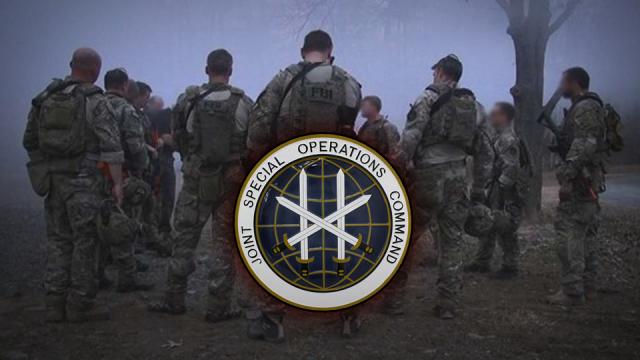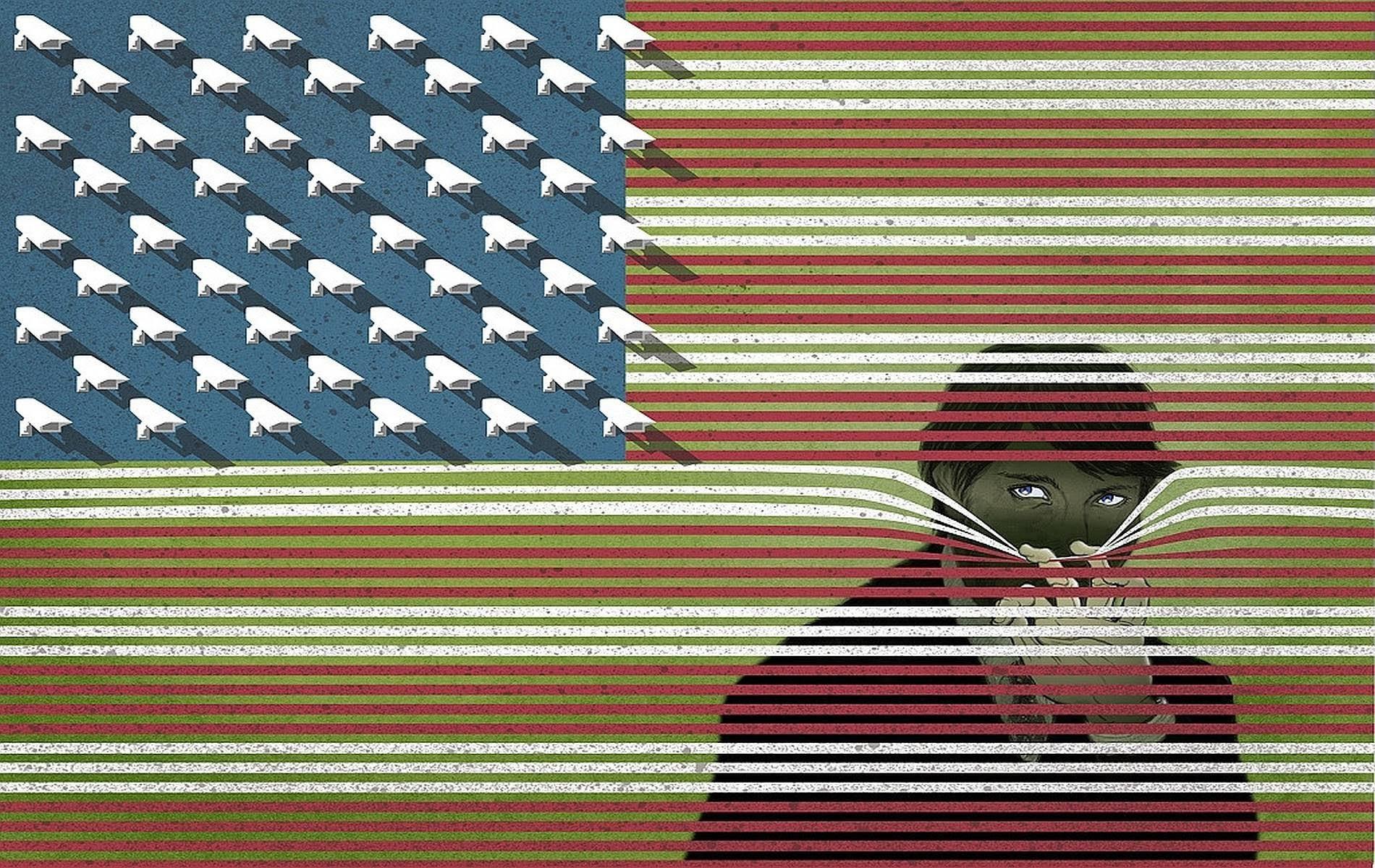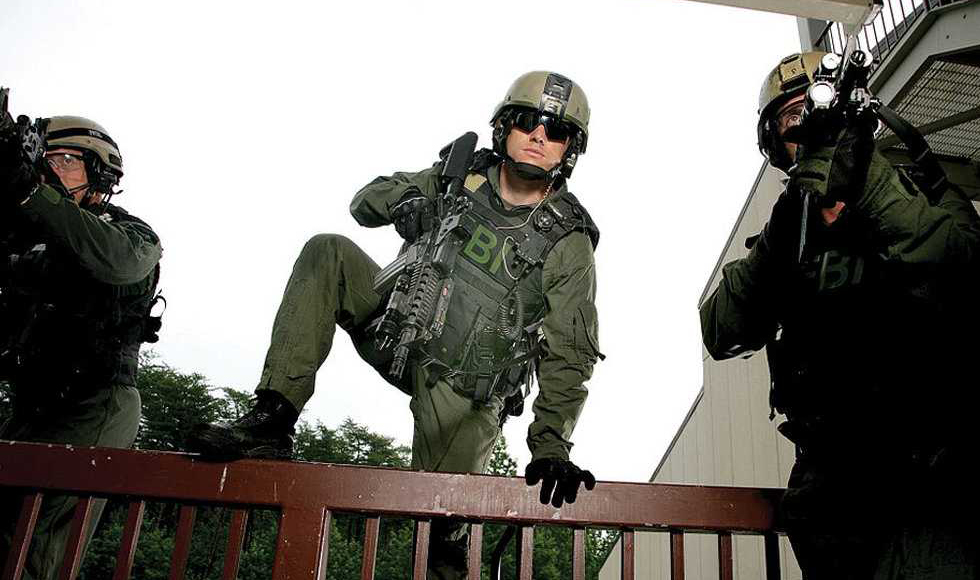
In Part 1 of this article, I outlined the revival of the Domestic Terrorism Executive Committee; Attorney General Eric Holder’s decision to focus on domestic terror threats; why the FBI’s role in the committee is worrisome; and a brief history of the bureau’s involvement in domestic terror plots and COINTELPRO (Counter Intelligence Programs). In this piece we'll look at the FBI’s use of informants, the Insider Threat Program, and the agency's partnership with the U.S. military's Joint Special Operations Command (JSOC) as specific, strategic ways it is pursuing its aims.
If you've watched the never ending stream of cable news in recent weeks, you may have noticed the barrage of reports mentioning domestic terror or extremism. Recent shootings in schools and public spaces once again has the pundits talking about the horrors of violence while frantically searching for solutions. The Southern Poverty Law Center, Democracy Now!, Raw Story and other outlets seem to believe the problem is a resurgence of the so-called Patriot Movement. But while this narrative may play out well on television, it's not necessarily a reflection of reality.
The Mainstream Takes Notice
The FBI’s involvement in domestic terror plots – and the ever thinner line between catching and creating “terrorists” – has not been completely lost on the major media outlets. Commenting on the situation, Rolling Stone's Rick Perlstein wrote a piece entitled “How FBI Entrapment Is Inventing "Terrorists" – and Letting Bad Guys Off the Hook” questioning the motives of the bureau. The New York Times even seemed to take a bold stance with David Shipler's piece, “Terrorist Plots, Hatched by the F.B.I.”, which stated:
“This is legal, but is it legitimate? Without the F.B.I., would the culprits commit violence on their own? Is cultivating potential terrorists the best use of the manpower designed to find the real ones? Judging by their official answers, the F.B.I. and the Justice Department are sure of themselves — too sure, perhaps.”
The article details the way entrapment efforts disguised as counter-terrorism usually start: with an individual making comments to friends, or through online postings, before being approached by an informant who encourages them to take their speech to the next level. Since 9/11 these types of stings have become commonplace – so much so that in America today, merely discussing the possibility of violence with an informant can warrant an arrest.
Recorded conversations show, contrary to claims by the Justice Department, that suspects are not always warned about the consequences of their actions and are, in fact, sometimes told by their informants to continue their efforts.
An investigation by Mother Jones and the Investigative Reporting Program at UC Berkeley examined prosecutions of 508 defendants in terrorism-related cases. The investigation revealed that the largest portion of the FBI’s $3.3 billion budget is currently directed to counterterrorism.

How the Informants Work
The FBI maintains as many as 15,000 informants in the field. Those informants report to their handlers about individuals who have made statements which can be construed as sympathizing with terrorists. From that point on, an undercover operative assigned to the case will approach the individual, propose plots – and in some cases provide actual explosives – to give federal authorities enough incriminating evidence to make an arrest.
The report found that almost half of terrorism-related prosecutions involved informants motivated by the incentive of making money, or erasing or diminishing their own criminal violations. Of the high-profile terror plots you've likely heard of in recent years, all but three were FBI stings. The 158 defendants prosecuted included 49 defendants who unwittingly participated in plots created by FBI provocateurs.
With the FBI's steady growth since September 11, 2001, and the increasing resources being funneled into counter-terrorism, it's likely these types of operations will continue. Surely, though, this federal agency answers to someone? Don’t be so sure. At a recent hearing about President Obama’s under-reported Insider Threat Program, the FBI had its brazen disregard for accountability on full display. Here's what happened:
Shortly after Chelsea (formerly Bradley) Manning leaked classified U.S. war documents to Wikileaks, President Obama issued an executive order establishing an interagency Insider Threat Task Force, aimed at "deterring, detecting and mitigating” future risks. The program has gone largely unnoticed, but McClatchy News released a detailed report last summer that questioned the program, alleging it would stifle whistleblowers and encourage government employees to watch their workplace for “high-risk persons or behaviors,” since they could now face criminal charges for failing to report such actions.
According to a Defense Department strategy paper leaked June 1, 2012, and obtained by McClatchy, “leaking is tantamount to aiding the enemies of the United States.” Senator Chuck Grassley took notice of the media reports and pressed the FBI for more information about the program. Senator Grassley recently spoke about his efforts to get the agency to divulge more specifics on the task force, and detailed the bureau’s lack of transparency:
“Four months ago I sent a letter to the FBI requesting its training materials on the Insider Threat Program. This program was announced by the Obama Administration in October 2011. It was intended to train federal employees to watch out for insider threats among their colleagues," Grassley said.
"Public news reports indicated that this program might not do enough to distinguish between true insider threats and legitimate whistleblowers. I relayed these concerns in my letter. I also asked for copies of the training materials. I said I wanted to examine whether they adequately distinguished between insider threats and whistleblowers.”
Accountable to Whom?
In response, the senator was told that a briefing would be the best way to get the answers he sought. So Grassley and Senator Patrick Leahy’s staff attended a meeting with the FBI’s head of the Insider Threat Program. The FBI didn't provide training materials to suspects, the agency told him, urging the senator not to worry about whistleblowers because “the Insider Threat Program would know to just avoid those people.”
Senator Grassley continued, “Now I have never heard of whistleblowers being required to 'register' in order to be protected. The idea of such a requirement should be pretty alarming to all Americans. Sometimes confidentiality is the best protection a whistleblower has.
"Unfortunately, neither my staff nor Chairman Leahy’s staff was able to learn more, because only about 10 minutes into the briefing, the FBI abruptly walked out. FBI officials simply refused to discuss any whistleblower implications in its Insider Threat Program and left the room. These are clearly not the actions of an agency that is genuinely open to whistleblowers or whistleblower protection.”
If this federal agency isn't accountable to elected officials, surely it sees no need to answer to the American people, either. In fact, it's more and more evident through the actions the FBI is taking that it considers average American citizens as the threat.
The Bureau's Role in JSOC
In addition, it's worth discussing the FBI's participation in night raids in Iraq and Afghanistan alongside the U.S. military's Joint Special Operations Command (JSOC) – a subject detailed in Jeremy Scahill’s book and documentary, Dirty Wars. An elite branch of the military that answers directly to the U.S. President, JSOC carries out shoot-to-kill orders directed at high-profile terrorist targets.
In April, the Washington Post revealed a little-known alliance between the bureau and JSOC that allowed agents to participate in hundreds of raids in Iraq and Afghanistan. The FBI’s Hostage and Rescue Team (HRT), which was embedded with JSOC on numerous raids, led some in the establishment to question the purposes and the validity of those missions.
Aside from the legal issues – since when was it acceptable procedure for a domestic law enforcement agency to participate in covert overseas military actions? – the bureau has done its part helping to stir up a new generation of the so-called terrorists it is looking for.
According to a report in CounterPunch, U.S. Special Operations Forces (SOF) murdered over 1,500 Afghan civilians in night raids in less than 10 months between 2010 and early 2011. If confirmed, this would make night raids – carried out by the United States in the name of eradicating terrorism – the largest cause of civilian casualties in Afghanistan.
To recap: the Federal Bureau of Investigation has a long history of monitoring peaceful activists and entrapping otherwise innocent people whom it then labels terrorists; does not answer to elected officials who question either its motives or its techniques; participates in dangerous night raids in foreign nations; and is now part of a committee to focus on possible domestic extremists.
The American people must now ask: is this the kind of government institution we want to keep funding with our taxes? And are the FBI's actions acceptable – much less Constitutionally legal – to a public that is being made to look and feel ever more like the enemy, rather than the protected?
3 WAYS TO SHOW YOUR SUPPORT
- Log in to post comments
















